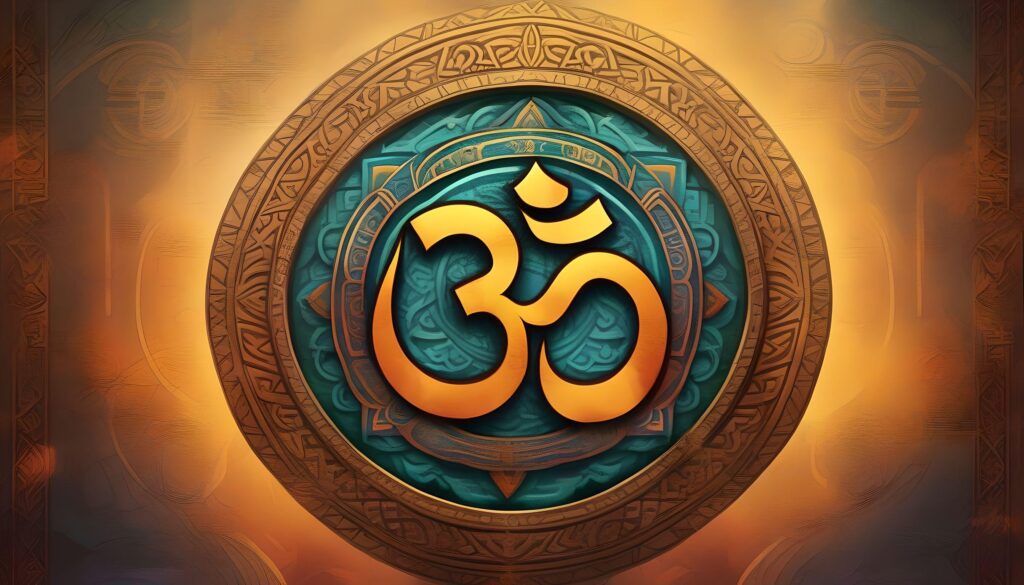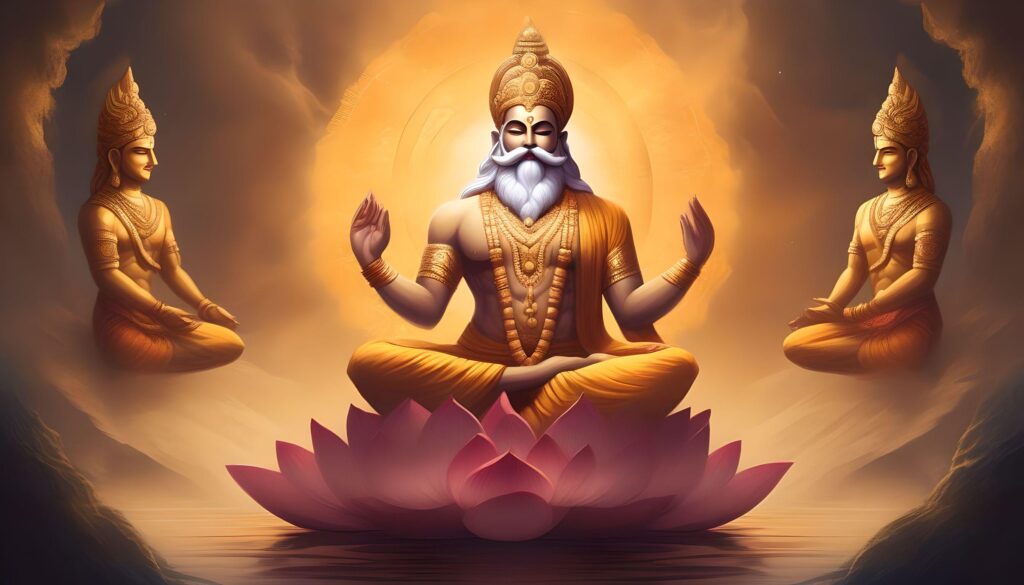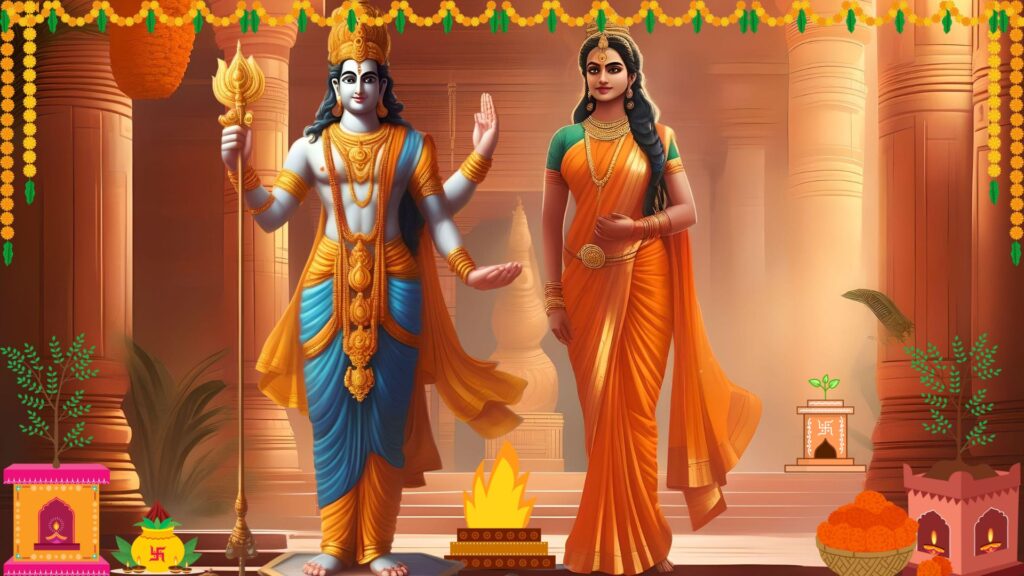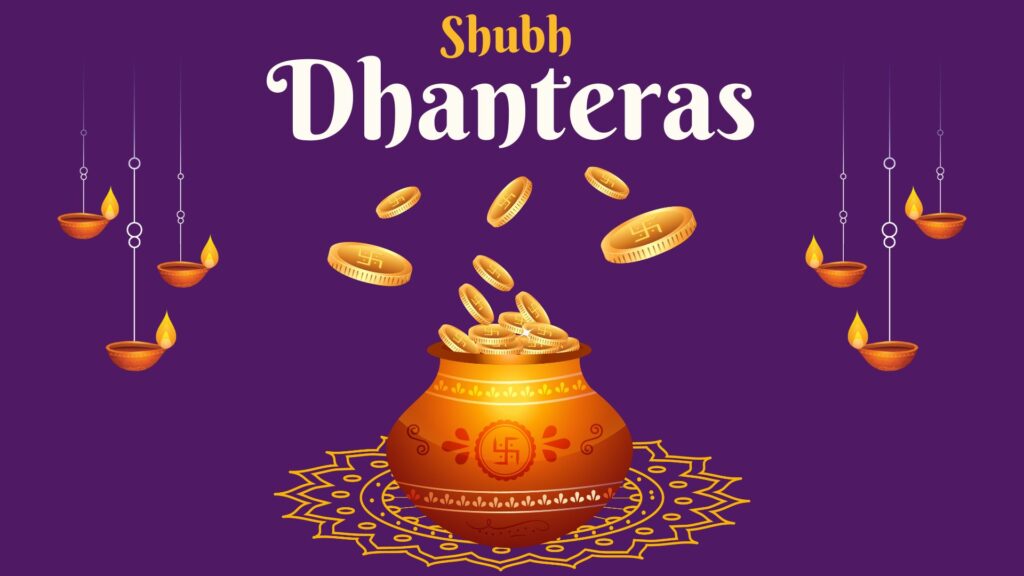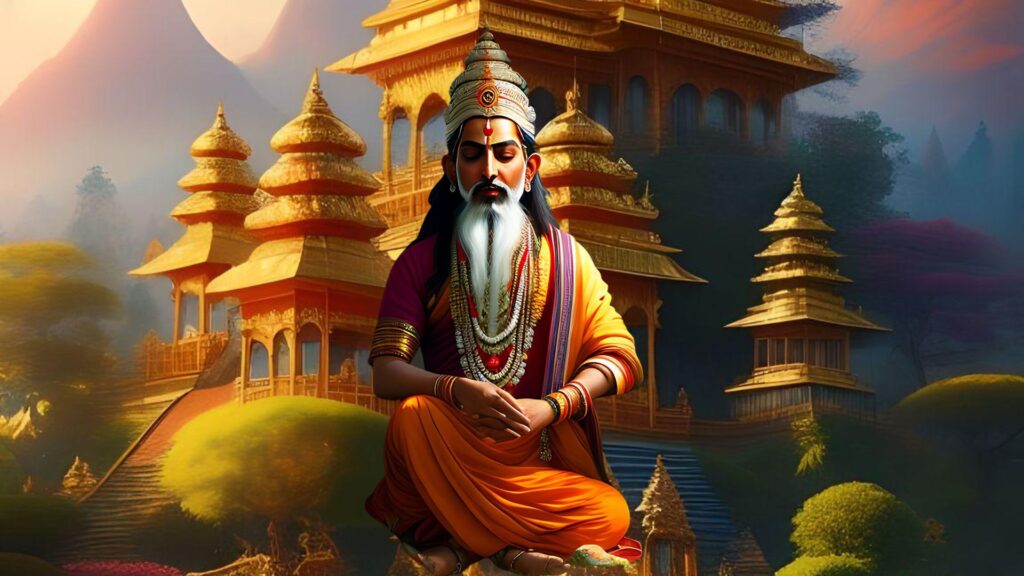Guru Purnima: A Celebration of Spiritual Guidance and Wisdom
Guru Purnima, alternatively referred to as Vyasa Purnima, is a momentous Hindu festival observed during the full moon of the Ashadha month (June-July) as per the Hindu calendar. This day is highly significant for individuals seeking spiritual enlightenment, as it is devoted to conveying appreciation to spiritual mentors, gurus, and instructors who have provided invaluable guidance throughout our spiritual voyage. This article aims to examine the historical roots, customary practices, and profound importance of Guru Purnima, thereby illuminating the significance of gurus and their influence on our existence.
Etymology: Understanding the Guru’s Role
“Gu” and “Ru” are Sanskrit words that combine to signify darkness or ignorance and a dispeller, respectively, from which the term “guru” originates. Thus, an individual who dispels darkness and guides us toward enlightenment is a guru. Gurus are esteemed among adherents of Jainism, Buddhism, and Hinduism as spiritual guides who impart knowledge, insight, and direction.
Observances: Honoring the Guru’s Teachings
Guru Purnima is observed with a multitude of spiritual activities and rituals. Through rituals and ceremonies, disciples manifest their gratitude and reverence for their gurus on this day. An essential observance is the Guru Puja, an elaborate ceremonial occasion devoted to paying homage to the guru. Disciples perform rituals, offer petitions, and beseech their spiritual instructors for blessings.
Guru Purnima, apart from its religious significance, is also commemorated within scholarly communities and academic circles in India. On this day, scholars and students extend their sincere appreciation to their instructors and mentors, recognizing the invaluable contributions they have made to their academic development and individual progress. This day serves as a poignant reminder of the criticality of education and the profound impact that educators have on their pupils’ lives.
Significance in Hinduism: Vyasa and the Guru-Shishya Tradition
Guru Purnima is revered within the Hindu faith due to its association with the birth anniversary of Vyasa, the esteemed author of the epic Mahabharata and compiler of the Vedas. In Hindu traditions, Vyasa is revered as one of the foremost gurus and a representation of the guru-shishya (teacher-disciple) tradition. In addition to dividing the Vedas into four sections, he also endowed his disciples with spiritual wisdom.
Hinduism is the foundation of the guru-shishya tradition, in which the guru serves as a mentor and spiritual guide who directs the disciple along the way to attaining self-realization. The guru-discipline dynamic is regarded as fundamental and sacred, predicated on submission, reverence, and reliance. Instructing the disciple in spiritual practices, wisdom, and knowledge, the guru facilitates the disciple’s spiritual development and liberation.
Observances in Buddhism: Buddha’s First Sermon
In remembrance of Gautama Buddha, who delivered his inaugural discourse, referred to as the Dhammacakkappavattana Sutta, on this day, Buddhists observe Guru Purnima. Buddha delivered the sermon at Sarnath, Uttar Pradesh, India, subsequent to his enlightenment. It signified the formation of the Buddhist sangha, which consists of a community of nuns and priests.
Buddhists observe the event as an opportunity to contemplate the teachings of Buddha and to reestablish their dedication to the Noble Eightfold Path, an endeavor that culminates in the resolution of suffering. In addition to reciting sutras and engaging in acts of benevolence and compassion, devotees meditate.
Observances in Jainism: Treenok Guhas and Teachers
Treenok Guha Purnima is the name given by Jains to Guru Purnima in remembrance of their treenok guhas (spiritual preceptors) and instructors. This day marks the start of Chaturmas, an auspicious four-month interval dedicated to spiritual observance. Jains engage in fervent prayer, recite scripture, and consult their treenok guhas during this time.
In the Jain community, the treenok guhas serve as guides who direct devotees towards the attainment of spiritual enlightenment and liberation. They impart wisdom, spiritual exercises, and ethical direction to their adherents, thereby assisting them in cultivating a virtuous and empathetic existence.
The Role of Parents and Teachers as Gurus
Guru Purnima encompasses not only spiritual instructors but also parents and all individuals who bestow wisdom and direction into our existence. A prominent spiritual leader, Sathya Sai Baba, underscores the critical role that parents and instructors play as gurus in molding the fate and character of both individuals and society at large.
Parents, being the initial authorities, exert a significant influence on the lives of their offspring. Their guidance, counsel, and admonitions influence their children’s values and convictions. Additionally, educators contribute significantly to the growth and progress of both individuals and society at large. Educators bear the onus of endowing their pupils with knowledge, expertise, and principles, thereby shaping them into conscientious and empathetic beings.
True gurus, according to Sathya Sai Baba, are capable of elevating their disciples to their own level while remaining egoless and selfless. He cautions against succumbing to pseudo-gurus who are devoid of authentic spiritual wisdom and altruism. He advocates for the application of discernment in the pursuit of authentic gurus who guide one toward self-actualization and the revelation of one’s own divinity.
The Teachings of Sathya Sai Baba on Guru Purnima
In 1956, Sathya Sai Baba, a highly regarded spiritual instructor, reignited the observance of Guru Purnima. During this particular occasion, he delivered addresses that underscored the significance of spiritual wisdom and exhorted attendees to show respect and esteem for their life instructors. He advocated for the acquisition of spiritual wisdom as opposed to mundane terrestrial knowledge.
Teachings of Sathya Sai Baba emphasize the necessity of altruistic service to humanity and the strength of love. He emphasizes the significance of prophets in guiding people from darkness to light and promotes the application of his teachings in daily life. The significance of self-control, self-exploration, and the recognition of our intrinsic divinity is emphasized by him.
Conclusion: Embracing the Guidance of Gurus
Guru Purnima is an occasion to express profound gratitude and reverence to mentors, spiritual instructors, and gurus who have stood by our side throughout our spiritual journey. This occasion provides an opportunity to reaffirm our dedication to embodying the wisdom that these enlightened individuals have imparted through their teachings.
In guiding individuals toward self-realization and liberation, gurus play a crucial role in all three faith traditions: Hinduism’s guru-shishya tradition, Buddhism’s Buddha teachings, and Jainism’s treenok guhas. The responsibility of molding the character and destiny of both individuals and society extends to parents and educators.
In observance of Guru Purnima, may we convey our sincere appreciation to all the gurus who have had a profound impact on our lives and recommit ourselves to embodying the principles they taught. May our ongoing pursuit of enlightenment, guidance, and wisdom from the sages who illuminate the way and direct us towards the path of divine love and self-realization dispel darkness.
Additional Information:
- Guru Purnima is celebrated in various countries, including India, Nepal, Bhutan, and others.
- The festival is marked by spiritual activities, rituals, and ceremonies.
- It is a time for self-reflection, self-inquiry, and self-transformation.
- The celebration of Guru Purnima is not limited to any specific religion and is embraced by people from various spiritual paths.

